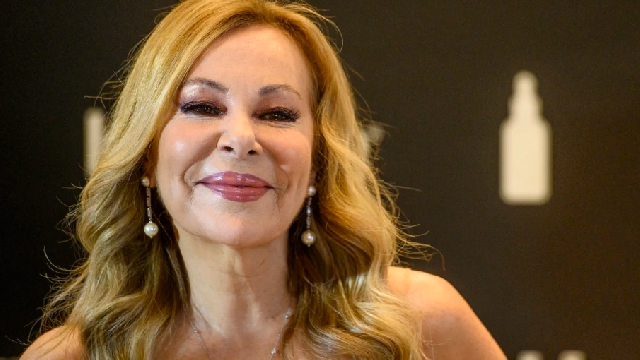Surrogacy: Spanish actress is mother and grandmother to the same baby
 Spanish television star Ana Obregón
Spanish television star Ana Obregón
A Spanish TV actress has sparked controversy after using a surrogate to fulfill what she says was the final wish of her dead son: to have a child.
Ana Obregón announced the birth in a cover story for Hola! magazine published earlier in April, detailing how she used sperm samples from son Aless, who died of cancer in 2020 at the age of 27, to impregnate a surrogate mother.
Obregón – a 68-year-old socialite who is married to Italian aristocrat Alessandro Lequio – has long been a fixture on Spanish television, and is best known for appearing in series such as “A las once en casa.”
Such was the interest in the child in Spain that another magazine, Letras, tracked down the surrogate – a woman of Cuban origin that lives in Florida – and splashed photos of her on its front page.
The story has sparked both legal and ethical debate in Spain, where surrogacy is illegal and sperm samples can only be used to impregnate a widowed partner within 12 months of the donor’s death with their explicit permission.
Obregón told Hola! that the baby, Ana Sandra Lequio Obregón, was born on March 20 in Miami and will have a US passport. She will be registered at the Spanish consulate in Miami before flying home to Spain, added Obregón.
Some have questioned whether Obregón should be able to bring a baby born via a method illegal under Spanish law into the country.
But the actress says she has documents proving that she is legally recognized as the baby’s mother in the United States, and adopting a child born abroad is legal in Spain.
While some experts say the legalities of the situation are unclear, many legal commentators have said she is unlikely to face any legal issues upon returning home.
However the case has also raised moral questions over surrogacy. Spanish law considers the practice “a form of violence against women.”
Others have questioned Obregon’s claim that she was fulfilling her son’s dying wish.
“It seems questionable to me that the wishes of the deceased would have been for his sperm to be used to impregnate an egg in the body of a woman in another country,” said philosophy professor Gonzalo Velasco in an interview with radio station Cadena Ser.
“It seems quite convoluted,” he added, likening the developments to a story by horror author Stephen King or melodramatic Spanish filmmaker Pedro Almodóvar.
Verónica Fumanal, president of Spain’s Association of Political Communication (ACOP) said the announcement made her think of the dystopian TV series “Black Mirror.”
“She bought herself a grandaughter with sperm from her dead son,” said Fumanal in an interview with Cadena Ser, who questioned the way in which Obregón had publicized the baby’s birth.
“She put a camera in her face and sold the exclusive,” said Fumanal.
Obregón has sought to dampen the controversy, calling the debate in Spain “absurd” because surrogacy is legal in many countries around the world.
Spain is one of many countries where surrogacy is illegal, and in others, such as the United Kingdom, surrogacy is legal but restricted.
These restrictions, in addition to high costs and a shortage of surrogates, encourage UK couples to look for a surrogate abroad, including in the US, where the process is more straightforward.
Obregón told Hola! that surrogacy is “very normalized” in the US and that there is no debate like there is in Spain.
She also revealed how baby Ana fits into her family.
“This girl isn’t my daughter, but my grandaughter,” she told Hola! “She is Aless’ daughter and when she grows up I will tell her that her father was a hero.”
Obregón also said that Aless always wanted a big family, and didn’t rule out repeating the process so that Ana could have a brother or sister.
But next on the agenda is the release of a book which tells the story of the surrogacy, scheduled for publication on April 19.
CNN has contacted representatives of both Ana Obregón and her husband Alessandro Lequio for comment.
Source: edition.cnn.com
Trending Entertainment

How to approach sex with realistic expectations
13:58
One-week observance of Daddy Lumba underway at Independence Square
13:47
Blackstar experience partners South Africa’s Arts Council to deepen cultural exchange
15:26
Ban on noisemaking: Daddy Lumba's one week observation relocated to Black Star Square
02:01
GTA refutes 'false claims' about 'Welcome, Woezor, Akwaaba' sign at Kwame Nkrumah Memorial Park
02:03
Gyakie bemoans social media turning the stage into 'unnerving' courtroom
02:00
Obaapa Christy didn't collaborate with Sarkodie over his huge fanbase: 'He's a brother'
17:26
Singapore honours President Mahama with an Orchid naming ceremony
13:19
Daddy Lumba’s family calls on Presidency ahead of funeral rites
06:30
Kinaata haunted by chances of dying on Z9 helicopter 'twice this year'
16:05




